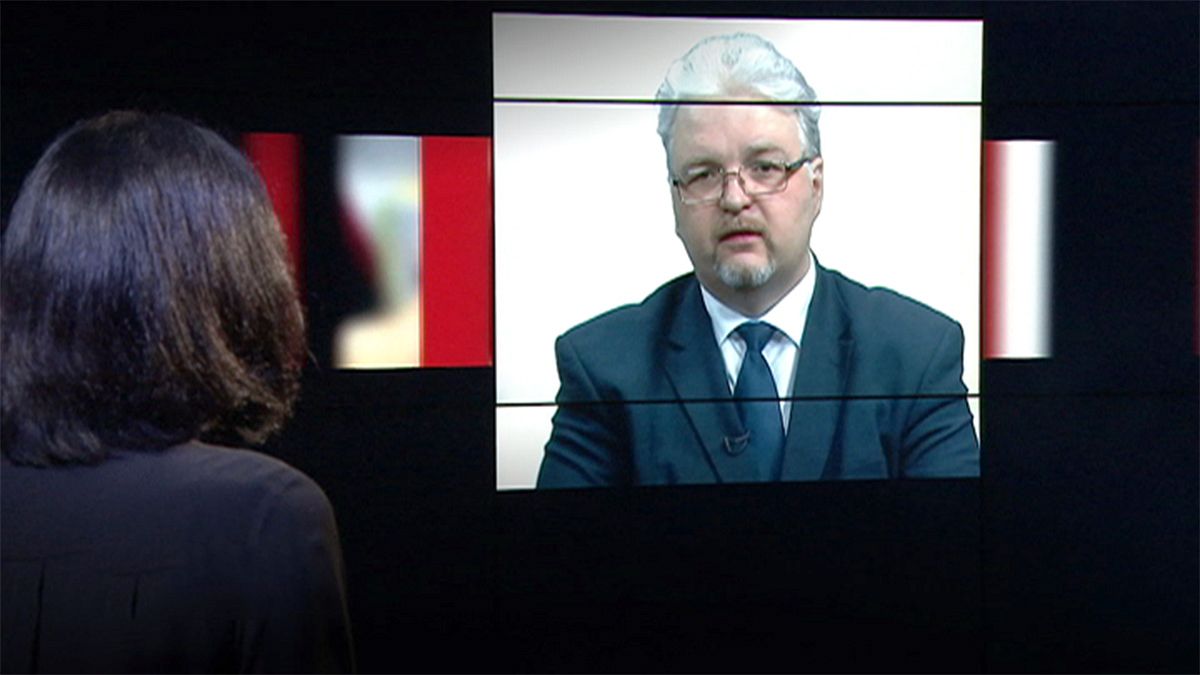The head of the Council of Europe's Committee for the Prevention of Torture says some inmates have to share beds.
Sophie Claudet, euronews:
Where have you seen the worse detention conditions in Europe?
Mykola Gnatovskyy, President of the European Committee for the Prevention of Torture (CPT):
“I can say that in several countries, we have seen conditions where persons would not have sufficient living space in a cell, or even had to share beds with other prisoners – something that is very alarming and completely unacceptable. I can give the example of a Bulgarian prison, in Burgas, where a prisoner would have, in some cells, about one square metre per person.”
euronews:
Why can’t Europe enforce some kind of standard rules of square footage per inmate, for example?
Mykola Gnatovskyy, CPT:
“Our Committee, the CPT, has come up with its standards over its more than 25 years of existence, and these standards are also largely applied by the European Court of Human Rights: it’s four square metres per person in a multiple occupancy cell. And these conditions are in principle legally binding through the Court’s jurisprudence.
There is something I tell the governments when I meet them, when they suffer from overcrowding in their prisons. I say look: you are losing a lot of money, for example to compensate prisoners when they go to court – to a national court or to the European Court of Human Rights – about the bad conditions in their places. And you’re basically wasting that money, instead of investing it into the development of the prison estate.”
euronews:
Some inmates are compensated while they’re actually jailed?
Mykola Gnatovskyy, CPT:
“I have seen lifers – life-sentenced prisoners – who have applied to courts and then received money, but their conditions were hardly improved, they simply received money. This is indeed totally absurd.”
euronews:
We’ve seen that France, unfortunately, has one of the highest rates of suicide in Europe: the average stands at 7.6 suicides per 10,000 inmates, France is around 12.4. Why does it still happen?
Mykola Gnatovskyy, CPT:
“Prisoners who present suicide risks should be placed in cells which are kind of suicide-proof: which are safe, which don’t have ligature points, which do not have sharp angles, and so on. This is one of the solutions. Professional medical help is also important, especially for prisoners having mental health issues: psychological support is also very important.”
euronews:
We have seen in our report in France that one of the inmates whose family we talked to overdosed on psychotropic drugs, although this person did not take any such drugs prior to being jailed. Do you think there is also an over-prescription of this type of drugs to people who actually don’t need them?
Mykola Gnatovskyy, CPT:
“I have seen prison doctors prescribing huge amounts of psychotropic medicines just basically to keep people quiet in the prison. Especially when prisons, again, are overcrowded, when the conditions are bad and so on, it has lasting consequences, and those consequences are very bad.”
Latest updates from our insiders team
